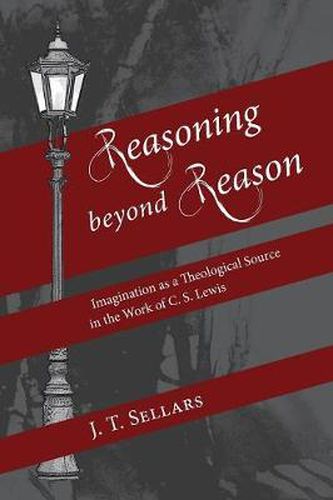Readings Newsletter
Become a Readings Member to make your shopping experience even easier.
Sign in or sign up for free!
You’re not far away from qualifying for FREE standard shipping within Australia
You’ve qualified for FREE standard shipping within Australia
The cart is loading…






This title is printed to order. This book may have been self-published. If so, we cannot guarantee the quality of the content. In the main most books will have gone through the editing process however some may not. We therefore suggest that you be aware of this before ordering this book. If in doubt check either the author or publisher’s details as we are unable to accept any returns unless they are faulty. Please contact us if you have any questions.
There is a seeming dichotomy in C. S. Lewis’s writing. On the one hand we see the writer of argumentative works, and on the other hand we have the imaginative poet. Lewis also found this dichotomy within himself. When he was a rationalist and atheist he found that these two sides of him were pulling in different directions: he believed that his rationalist side could not be reconciled with his imaginative side. Once he became a Christian, he eventually found a means of marrying the two–principally, through story and myth. Within C. S. Lewis studies, there is also a common conception of Lewis as a modern rationalist philosopher, i.e., a rationalist who thinks arguments (and his arguments in particular) are the last answer on the questions he undertakes. Reasoning beyond Reason attempts to take this view to task by placing Lewis back into his pre-modern context and showing that his sources and influences are classical ones. In this process Lewis is viewed through the idea that imagination and reason are connected in an intimate way: they are different expressions of a single divine source of truth, and there is an imagination already present upon which reason works. Lewis’s transpositional view of imagination implicitly pushes towards a somewhat radical position: the imagination is to be seen as theological in its reliance upon something more than the merely material; it necessarily relies on a transcendent funding for its use and meaning. In other words, the imagination is a well-source for what we might normally label rational.
$9.00 standard shipping within Australia
FREE standard shipping within Australia for orders over $100.00
Express & International shipping calculated at checkout
This title is printed to order. This book may have been self-published. If so, we cannot guarantee the quality of the content. In the main most books will have gone through the editing process however some may not. We therefore suggest that you be aware of this before ordering this book. If in doubt check either the author or publisher’s details as we are unable to accept any returns unless they are faulty. Please contact us if you have any questions.
There is a seeming dichotomy in C. S. Lewis’s writing. On the one hand we see the writer of argumentative works, and on the other hand we have the imaginative poet. Lewis also found this dichotomy within himself. When he was a rationalist and atheist he found that these two sides of him were pulling in different directions: he believed that his rationalist side could not be reconciled with his imaginative side. Once he became a Christian, he eventually found a means of marrying the two–principally, through story and myth. Within C. S. Lewis studies, there is also a common conception of Lewis as a modern rationalist philosopher, i.e., a rationalist who thinks arguments (and his arguments in particular) are the last answer on the questions he undertakes. Reasoning beyond Reason attempts to take this view to task by placing Lewis back into his pre-modern context and showing that his sources and influences are classical ones. In this process Lewis is viewed through the idea that imagination and reason are connected in an intimate way: they are different expressions of a single divine source of truth, and there is an imagination already present upon which reason works. Lewis’s transpositional view of imagination implicitly pushes towards a somewhat radical position: the imagination is to be seen as theological in its reliance upon something more than the merely material; it necessarily relies on a transcendent funding for its use and meaning. In other words, the imagination is a well-source for what we might normally label rational.